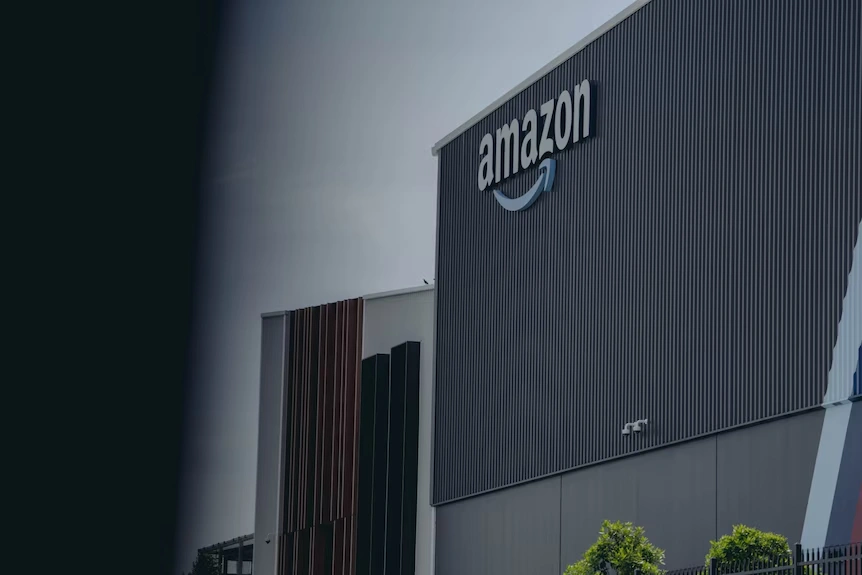Sydney’s Amazon Flex drivers have raised concerns over alleged algorithmic delistings affecting their work access. Drivers say automated systems manage their accounts and can remove them with little explanation. The claims have sparked calls for more transparency and fairer treatment.
Algorithmic Management Under Scrutiny
Drivers contracted through Amazon Flex use their own vehicles to deliver packages. Their work is overseen by automated systems that assess performance. These algorithms assign delivery blocks, evaluate punctuality, and monitor compliance with delivery instructions.
Challenges emerge when drivers face account terminations. Many describe abrupt delistings flagged by the algorithm. Some drivers reported receiving automated warnings or penalties for issues they claim were out of their control. One driver shared receiving warnings for “multiple late deliveries” despite on-time completion, blaming app technical glitches for the delay records.

Amazon Flex drivers use their own car to deliver packages
Sydney drivers say these automated decisions lack human review. They struggle to appeal algorithmic terminations, finding the process opaque and often fruitless. Drivers also report difficulty reaching company representatives to discuss their cases.
Impact on Drivers’ Earnings and Safety
The delivery system offers payment per delivery block, with rates varying by time and day. However, drivers note delays caused by factors such as package unavailability or station inefficiencies. These delays are not compensated, even when waiting is caused by station faults. Drivers bear the costs of lost hours and consequent income reductions.
Additionally, Sydney’s urban environment creates safety concerns. Drivers report challenges finding safe parking spots in the CBD, risking fines and demerit points. The pressure to complete deliveries within tight schedules impacts driving behaviour, increasing risks in busy traffic conditions.
Algorithmic routing also raises safety issues. Some delivery routes require crossing multi-lane highways at night, carrying multiple packages. This routing prioritises efficiency over driver safety. Reports indicate drivers sometimes bring a second person to monitor their parked vehicles while delivering, reflecting concern over the operational demands placed on them.

Drivers received several parking fines and lost demerit points while delivering in Sydney’s busy CBD
Claims of Unfair Treatment
Drivers allege the systems managing their work treat them unfairly. They cite automatic terminations triggered by minor errors or system faults. Concerns extend to ratings and performance metrics, which impact access to delivery blocks.
The competitive nature of block assignments drives some drivers to use bot-driven programs to secure deliveries quickly. Amazon forbids this practice but reportedly does not address such complaints effectively. Allegations of robocall messages accusing drivers of breach errors are common.
Transport unions have criticised Amazon Flex’s pay-by-delivery system, urging for minimum wage protections and better working conditions. The Transport Workers Union (TWU) points to underpayment issues, calling for regulation in the gig economy to protect workers controlled by algorithms.
Amazon’s Response and Industry Context
Amazon maintains that human managers review flagged drivers before any termination decision. The company asserts the algorithm supports efficiency without compromising fairness. Amazon Flex delivers in a model similar to gig work platforms, providing flexibility to its delivery partners while requiring adherence to performance standards.
However, independent reports highlight the imbalance between company interests and driver welfare. Documented cases in the US and Europe show similar algorithmic management leading to sudden contract terminations. Flexible delivery work relies heavily on technology, but human oversight remains limited.
Advocates stress the need for audit and transparency around these automated systems. Fair dispute resolution mechanisms, adequate compensation for downtime, and safe working conditions are essential principles in the evolving gig economy.

Amazon Flex is now defending at least two unfair deactivation claims at the Fair Work Commission
Driver Experiences Highlight Broader Issues
Driver testimonies depict a high-pressure work environment. One Sydney driver revealed paying commissions to external bots to secure delivery blocks due to intense competition. Other drivers spoke of receiving penalising messages for alleged violations that could not be contested effectively.
Safety risks include receiving parking fines in inner city areas lacking sufficient legal stopping points. Drivers also face the risk of algorithmic downgrades based on automated facial recognition checks or app-recorded data, which drivers say are prone to errors.
The sustained difficulties influence drivers’ ability to earn consistently and safely. The absence of clear recourse mechanisms and insufficient communication channels exacerbates frustration and insecurity.
What Expert Analysis Says
Industry analysts observe the growing role of algorithmic management in logistics sectors. Algorithms are designed to optimise delivery output but often fail to account fully for human factors, including environmental challenges and unpredictable delays.
The tech sector faces increasing regulatory scrutiny over automated decision-making. Data fairness, transparency, and the right to appeal are priorities in policy debates. Organisations like the Algorithmic Accountability Act in the United States seek to limit harmful impacts by requiring audits and procedural safeguards.
Also Read: Commonwealth Bank of Australia Reports Capital Adequacy and Risk Disclosures as at 30 September 2025
Australian authorities and unions advocate for similar protections. Workers in gig roles demand recognition of algorithm impacts on job security and pay fairness.
Looking Ahead for Amazon Flex and Drivers
With mounting driver complaints and public attention, pressure grows on Amazon to improve management systems. Calls focus on better human oversight, clearer communication, and fair compensation policies, including paid waiting times.
Flexible delivery work is popular as a source of supplementary income, but only if drivers can trust the systems governing their engagement. Establishing transparent processes for performance evaluations and dispute resolution is crucial.
Amazon’s approach to automated management will likely influence wider gig economy practices in Australia. Balancing efficiency with worker rights remains a key challenge.












